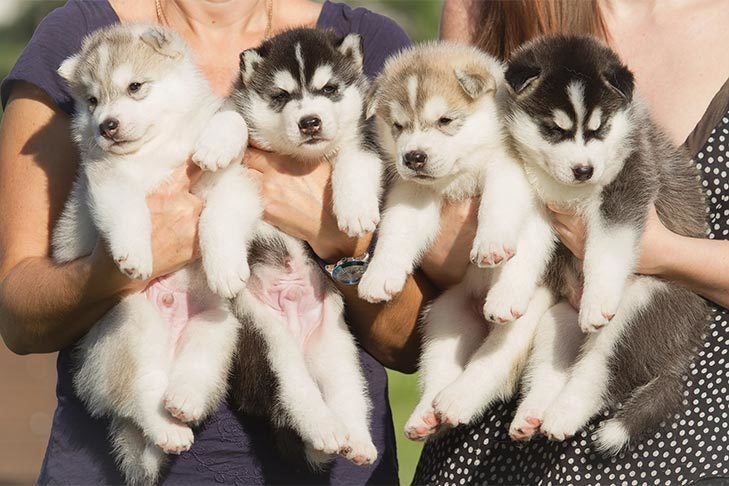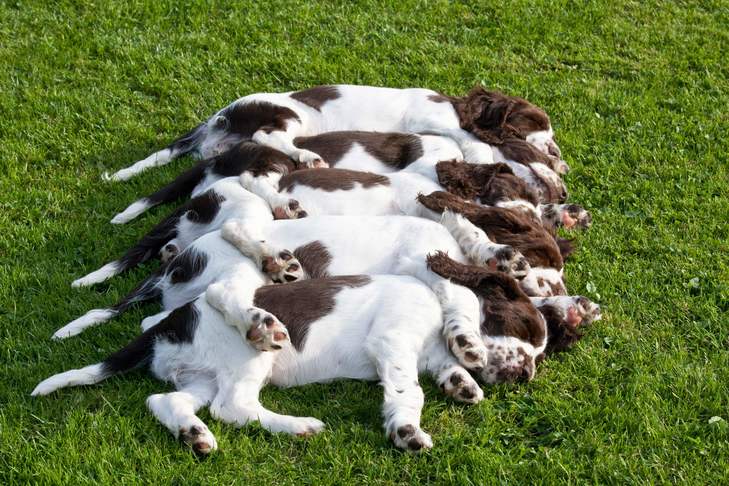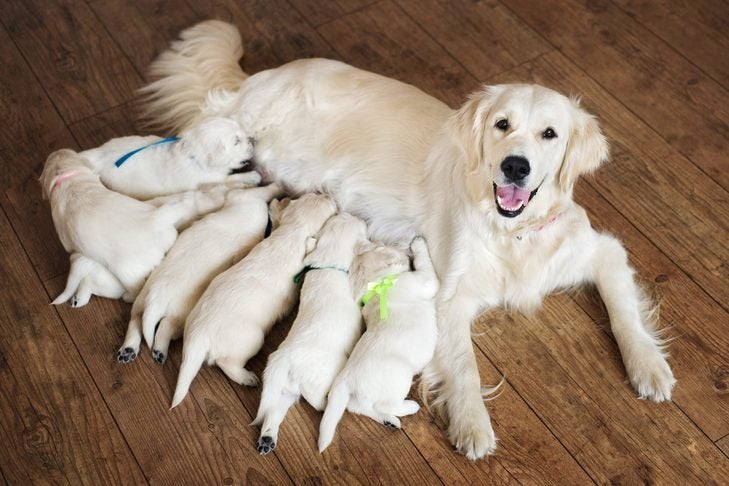
|
What Exactly Is A Registered Kennel Name?
Registering a kennel name is an optional service provided by the American Kennel Club to help breeders protect their reputation and legacy. Registering a kennel name is very much like copyrighting a name for one’s sole use in the naming of members of a particular breed of dog. All dogs of that breed will require the kennel name owner’s permission to use the protected name anywhere in the name of dogs of the applicable breed. A Registered Kennel Name is treated as an organization and, as such, can be both the registered owner of dogs and the breeder of litters. Registered Kennel Names are also known as ‘protected’ kennel names.
Registering Kennel Names Online
Paper registration applications (either individual registration applications or full litter forms) submitted via mail must be signed on the granting approval line, or the application will be denied based on the name containing a protected name.
Before 2018, registrations involving a Registered Kennel Name could not be done online by the new owner, as there was no way to verify the permission of the kennel owner.
Today, however, breeders may use Breeder EZ-Reg, an online application that allows the breeder to register dogs with their kennel name to the new owners. In 2018, the online registration system also was enhanced to allow new owners to register dogs online. If a name includes a Registered Kennel Name, the user will be prompted to certify that they have permission to use the kennel name, or else they must choose a new name. If the kennel name is used, an email is sent to the kennel name owner notifying him or her of the registration. If the name was used without authorization and the kennel name owner objects, AKC can be contacted to remove the kennel name from the dog.

Pros & Cons Of Registered Kennel Names
Registering a kennel name protects the owners from unauthorized use of their kennel name, thus protecting the reputation of their breeding program and lineage of dogs. This prevents confusion as to the bloodlines or breeding practices expected from a given kennel and the ill-intentioned use of another’s name to place dogs or gain favor for one’s lines. A name that includes a registered kennel name cannot be changed without the permission of the kennel name owner. Kennel names that are registered with AKC are identified by the computer system as protected, and as such, require the verification of permission before a transaction can be completed.
AKC policy requires imported dogs to be registered with the same name that is on the foreign registration papers. Owners of a kennel name may add their registered kennel name to the end of an imported dog’s name, with an appropriate preposition if desire. This is the only exception to the foreign registration policy.
Kennel names are defined as an organization that can own dogs and litters, meaning that dogs may be registered to the kennel name, listing only the kennel or the kennel and co-owners as owners and/or breeders of dogs. If a kennel owner retires from breeding and wishes to pass on their kennel name to a protégé or partner, there is a process to transfer ownership to qualified individuals. It can also be willed or inherited. The new owner must meet the requirements to own a kennel name before the next renewal cycle.
A Bit of History
The first publication of registered kennel names was in the January 1889 issue of the AKC Gazette, which listed names such as Blemton, Fordhook, Kilmarnock, and Maizeland. Most dogs of the day were registered with simple names such as Spot, Dan, or Rover, even if they were owned by a kennel. Tracing the first kennel name registered with AKC has proven elusive.
The first official rule governing kennel names appeared in the Jan. 1, 1903, Rules for the Government of Dog Shows, which stated:
“No entries can be made in a kennel name unless the name has been registered with the American Kennel Club. The partners in a kennel will be deemed equally culpable in the case of fraud perpetrated in their name.”
On Feb. 14, 1934, the rules for registering and protecting kennel names were made more specific. The new rules stated that the AKC would not “protect any person against the use by any other person of any kennel or trade name as part of the name of a dog or in connection with the sale or showing of dogs unless the permission to use that kennel or trade name has first been obtained from the AKC.” The rule further stated that if the owners of a kennel name failed to register any dogs under that name for six years, the ownership of the name would expire. Early kennel names before 1934 were issued on a lifetime basis.
More rule changes were implemented in 1949, the most significant being the limiting of kennel name ownership to a five-year period, after which the owner had to apply for renewal. Until 2004, a kennel name was registered for All AKC Recognized Breeds. In 2004, kennel names were issued on a breed-specific basis, opening up the availability of names. Kennel names granted before 2004, were grandfathered as All-Breed names as long as the owner maintained them as such. Once a kennel name lapsed or was converted to a breed-specific kennel name, the All-Breed status was/is forever forfeited.
The most recent change in 2017 was the removal of the restriction on using family names and names of cities as registered names.
Parent Clubs can request the retirement of significant kennel names in their breed. AKC will research those requests and if able, will retire the kennel names so they will not be available for any further use for that breed.
Requirements
To register a kennel name, the applicant must have a history of participation in AKC events in the breed applied for and have registered five AKC litters of that breed in the past five years, or at minimum one AKC litter in the past five years to be eligible for a registered kennel name on a provisional approval.
The name to be registered can be up to two words, and a maximum of 15 characters, including any space or punctuation, and the name must be essentially unique to the requester. AKC will research records for the preceding ten years to identify all usage of the requested name and whether that usage is attributable to the requestor. In determining this, the AKC considers whether the requester is related to the dogs as an owner, breeder, or sire owner, or appears in the chain of title of the dog or the sire/dam. If a name is used more than incidentally by unrelated individuals, the name will be deemed common or unavailable and cannot be granted for exclusive use.

The Registered Kennel Name application is available for download and states the requirements on the first page. Applications are processed in the month received and notification of approved kennel names is sent out at the end of the month. Approved kennel names will then be published in the next available issue of the online Gazette. This publication is the public notice for approved and granted kennel names.
After 60 days, an approved kennel name will be published as granted if no substantiated objections or proof of infringement is received. Granted kennel names are entered into the system and protected from unauthorized use from that point forward until a kennel name either lapses or is revoked (by the owner or AKC).
Registered Kennel Names must be renewed every five years. After six years, a kennel name that is not renewed is considered abandoned and must be reapplied for if the owner wishes to re-register. Each breed on an application for multiple breeds will be researched and approved independently.
When a new kennel name is granted in the system, AKC automatically protects the name as entered, as well as in the possessive, plural, and plural possessive forms for the name.
Summary
Registering your kennel name can protect your hard–earned reputation and eliminate the possibility of others using your name to promote their own ends. The kennel name protects the owner from dogs bearing their kennel name from having the dog’s name changed without permission. Lastly, when importing dogs, they can be identified with the importing kennel if the kennel name is registered.

